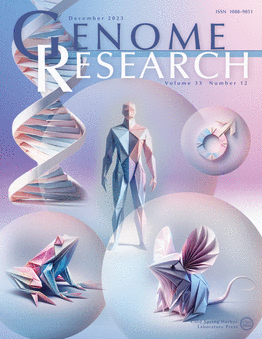Advancements in prospective single-cell lineage barcoding and their applications in research
IF 6.2
2区 生物学
Q1 BIOCHEMISTRY & MOLECULAR BIOLOGY
引用次数: 0
Abstract
Single-cell lineage tracing (scLT) has emerged as a powerful tool, providing unparalleled resolution to investigate cellular dynamics, fate determination, and the underlying molecular mechanisms. This review thoroughly examines the latest prospective lineage DNA barcode tracing technologies. It further highlights pivotal studies that leverage single-cell lentiviral integration barcoding technology to unravel the dynamic nature of cell lineages in both developmental biology and cancer research. Additionally, the review navigates through critical considerations for successful experimental design in lineage tracing and addresses challenges inherent in this field, including technical limitations, complexities in data analysis, and the imperative for standardization. It also outlines current gaps in knowledge and suggests future research directions, contributing to the ongoing advancement of scLT studies.前瞻性单细胞系条码技术的进展及其在研究中的应用
单细胞谱系追踪(scLT)已成为一种强大的工具,可提供无与伦比的分辨率来研究细胞动力学、命运决定和潜在的分子机制。本综述深入探讨了最新的前瞻性细胞系 DNA 条形码追踪技术。它进一步强调了利用单细胞慢病毒整合条形码技术揭示发育生物学和癌症研究中细胞系动态性质的关键研究。此外,该综述还介绍了成功设计品系追踪实验的关键注意事项,并探讨了该领域固有的挑战,包括技术限制、数据分析的复杂性以及标准化的必要性。综述还概述了目前的知识空白,并提出了未来的研究方向,为持续推进血统追踪研究做出了贡献。
本文章由计算机程序翻译,如有差异,请以英文原文为准。
求助全文
约1分钟内获得全文
求助全文
来源期刊

Genome research
生物-生化与分子生物学
CiteScore
12.40
自引率
1.40%
发文量
140
审稿时长
6 months
期刊介绍:
Launched in 1995, Genome Research is an international, continuously published, peer-reviewed journal that focuses on research that provides novel insights into the genome biology of all organisms, including advances in genomic medicine.
Among the topics considered by the journal are genome structure and function, comparative genomics, molecular evolution, genome-scale quantitative and population genetics, proteomics, epigenomics, and systems biology. The journal also features exciting gene discoveries and reports of cutting-edge computational biology and high-throughput methodologies.
New data in these areas are published as research papers, or methods and resource reports that provide novel information on technologies or tools that will be of interest to a broad readership. Complete data sets are presented electronically on the journal''s web site where appropriate. The journal also provides Reviews, Perspectives, and Insight/Outlook articles, which present commentary on the latest advances published both here and elsewhere, placing such progress in its broader biological context.
 求助内容:
求助内容: 应助结果提醒方式:
应助结果提醒方式:


